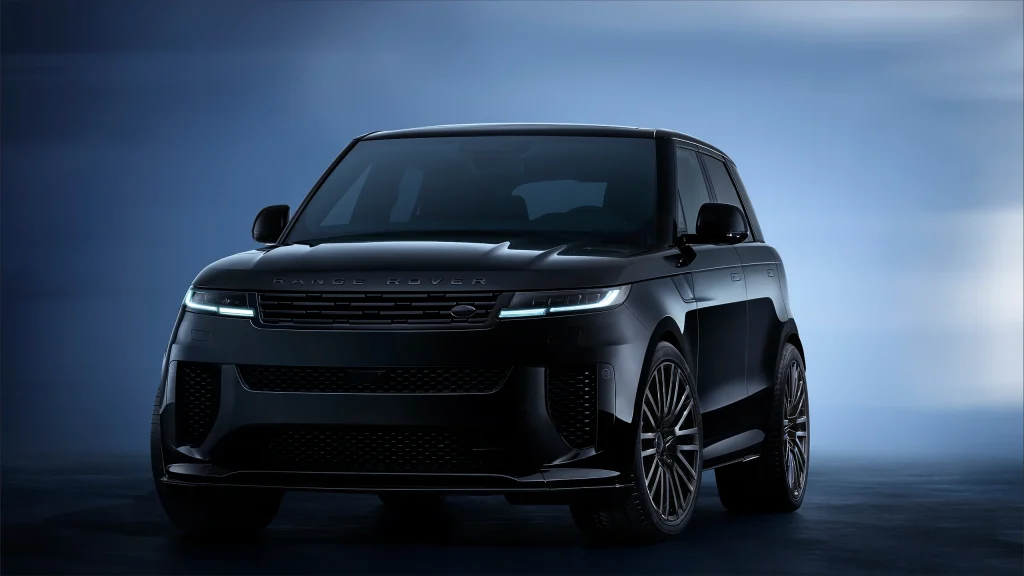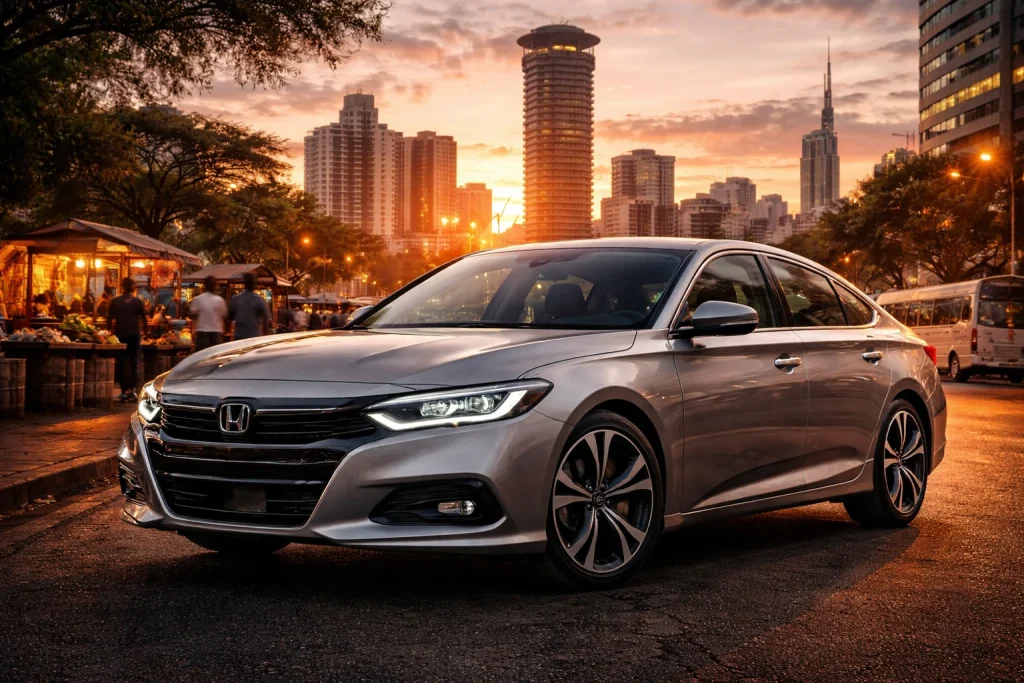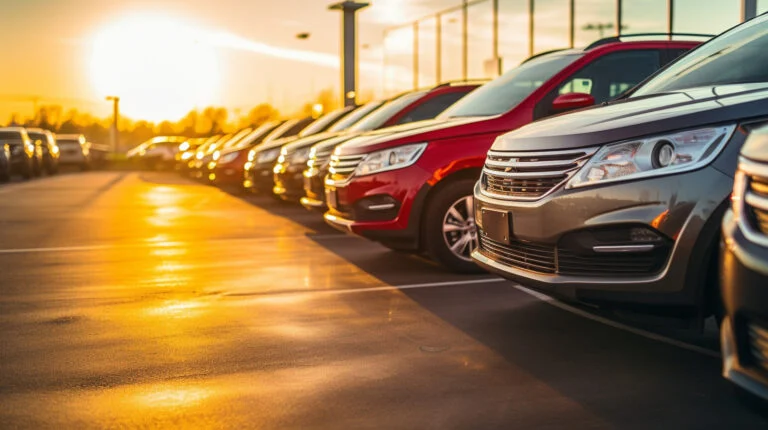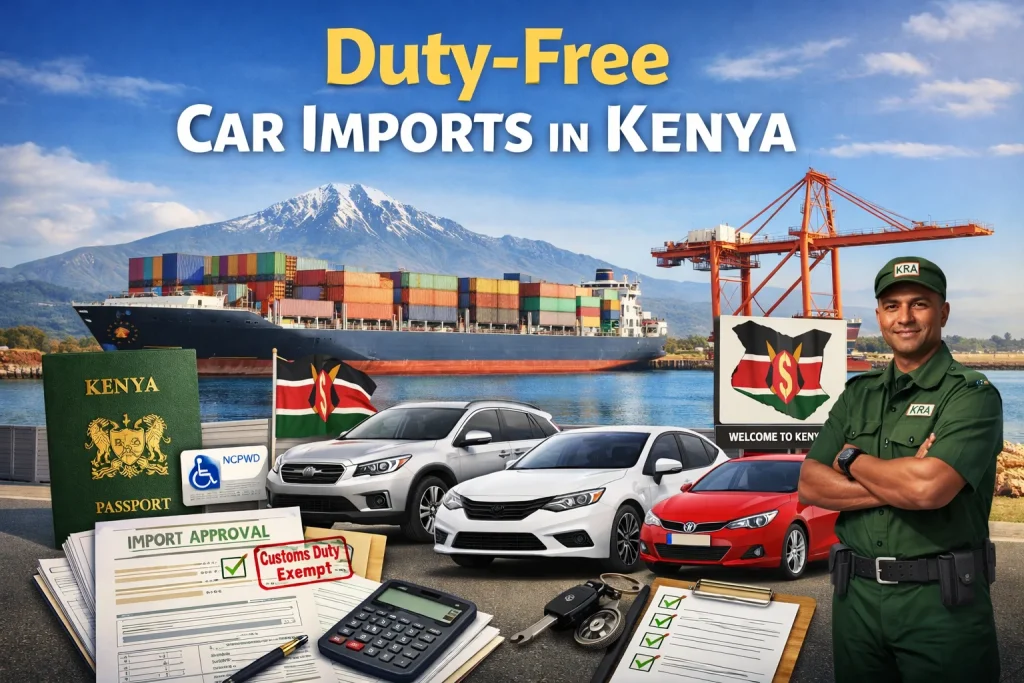Importing a car into Kenya has become more popular than ever. With access to thousands of models from countries like Japan, the UK, and the UAE, Kenyan buyers are no longer limited to local dealership options. But with all that choice comes a challenge: how do you choose the right car to import?
Whether you’re a first-time buyer or just exploring your options, this guide is designed to walk you through the key things to consider—so you can avoid common mistakes and make a smart, informed decision.
1. Define Your Needs First
Every car buyer is different. Start by asking yourself:
- Do you need a car for daily commuting, long-distance travel, or business use?
- Will you be driving in the city, on rural roads, or off-road?
- How many passengers or how much cargo will you typically carry?
Quick Guide Based on Use:
| Use Case | Recommended Type |
|---|---|
| Urban commuting | Hatchbacks (e.g., Honda Fit, Toyota Vitz) |
| Family travel | MPVs (e.g., Toyota Noah, Honda Stepwgn) |
| Business/delivery | Vans or station wagons (e.g., Probox, Fielder) |
| Upcountry/off-road use | SUVs (e.g., Subaru Forester, Toyota Harrier) |
| Executive/comfort travel | Sedans (e.g., Toyota Premio, Nissan Bluebird) |
2. Set a Full Budget—Not Just the Car Price
Many people make the mistake of focusing only on the purchase price of the vehicle. In reality, importing a car involves several other costs, including:
- Freight and shipping
- Import duty, VAT, and other taxes
- Inspection and clearance
- Registration and number plates
- Servicing or repairs upon arrival
💡 Tip: Always ask for a “landed cost” when evaluating any car. This is the full cost to get it to your doorstep, ready to drive.
3. Prioritize Fuel Efficiency
Fuel economy is one of the most important considerations for any buyer in Kenya today. With the rising cost of fuel, a car that sips rather than gulps can save you thousands per year.
Top Fuel-Efficient Imports (2025 Picks):
- Toyota Aqua (Hybrid) – 30+ km/L
- Honda Fit Hybrid – 27+ km/L
- Mazda Demio – 20–25 km/L
- Nissan Note e-Power – Hybrid electric drive, excellent economy
⚡ Hybrid technology is rapidly gaining traction in Kenya due to these savings, along with environmental benefits.
4. Check Spare Parts Availability
Even the best car will eventually need maintenance—and that means you’ll need parts. Before you import any car, consider how easy (and affordable) it will be to service and repair it locally.
Cars With Great Support in Kenya:
- Toyota – Widest availability of parts and service centers
- Nissan – Strong support in both urban and rural areas
- Mazda – Reliable with improving parts availability
- Subaru – Popular, though parts can be slightly pricier
📌 Luxury brands like BMW, Audi, and Mercedes may require more expensive parts and expert mechanics.
5. Resale Value Matters Too
Even if you’re buying a car to keep for several years, it’s still wise to think about resale value. Circumstances change—you might want to upgrade, start a business, or switch to a different car type in the future. Choosing a vehicle that retains its value well will help you recover a significant portion of your investment when you eventually sell.
Below are some of the most trusted and high-resale models in Kenya—and the reasons why they consistently perform well in the second-hand market:
1. Toyota Premio
The Toyota Premio has long been a favorite among Kenyan professionals and families.
Why it holds value:
- Executive sedan with a premium feel
- Extremely comfortable and reliable for long-distance travel
- Known for low fuel consumption and easy maintenance
- Highly respected across Kenya as a “status car” without the high luxury price
- Spare parts are widely available and affordable
Verdict: A top choice for anyone looking for a fuel-efficient, low-maintenance executive car.
2. Toyota Fielder
The Fielder is one of Kenya’s best-selling station wagons, and it has earned its place for good reasons.
Why it holds value:
- Offers excellent cargo space while remaining compact
- Very popular with Uber and Bolt drivers due to low running costs
- Strong resale value due to high demand in both urban and rural markets
- Reliable 1.5L and 1.8L engine options
- Spare parts are abundant, and repairs are inexpensive
Verdict: A utility powerhouse—ideal for small families, businesses, and ride-hailing services.
3. Honda Vezel
As the hybrid wave grows in Kenya, the Honda Vezel has emerged as a leader in the compact crossover segment.
Why it holds value:
- Combines fuel efficiency with SUV-like styling
- Hybrid versions are extremely economical and environmentally friendly
- Interior feels premium and tech-forward
- Great ground clearance for Kenyan roads
- Growing mechanic familiarity with Honda hybrids
Verdict: A great pick for urban buyers who want economy and style, with strong demand from young professionals.
4. Subaru Forester
The Forester continues to enjoy cult-like popularity among Kenyan drivers who love adventure and performance.
Why it holds value:
- Symmetrical all-wheel drive makes it perfect for off-road and rural areas
- Turbocharged trims appeal to car enthusiasts
- Strong engine performance and road grip
- Subaru brand loyalty ensures quick resale
- Solid build quality that withstands harsh terrains
Verdict: An ideal blend of utility, comfort, and power for adventurous or upcountry users.
5. Mazda CX-5
The Mazda CX-5 is the most refined of the bunch, offering a near-luxury experience at a competitive price.
Why it holds value:
- Eye-catching design and premium interior
- Excellent fuel economy for an SUV
- High safety ratings and reliable engine options
- Gaining popularity quickly among young professionals and families
- Spare parts are becoming increasingly accessible in Kenya
Verdict: A smart, stylish, and practical SUV that holds its value especially well among upwardly mobile Kenyans.
6. Understand Kenya’s Import Rules
Before falling in love with any car online, make sure it’s eligible for import into Kenya. The Kenya Bureau of Standards (KEBS) and Kenya Revenue Authority (KRA) have strict requirements:
- ✅ Age Limit: Car must be 8 years old or less from year of first registration
- ✅ Right-Hand Drive (RHD) only
- ✅ Pre-Shipment Inspection is mandatory (JEVIC or QISJ certified)
- ✅ Roadworthiness: Must pass KEBS standards
👉 For full steps on the import process, read our guide:
How to Import a Car to Kenya: Step-by-Step
When buying an import, always ask yourself: “If I wanted to resell this car in 3–5 years, will people still want it?” These models guarantee a solid resale market, so you’re not just buying a car—you’re making a smart investment.





